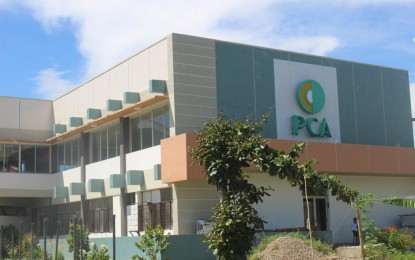
BUTUAN CITY – A mitigation program that will be implemented in three phases this year by the Philippine Coconut Authority (PCA) is seen to benefit thousands of coconut farmers in Caraga Region who are directly affected by the 2019 coronavirus disease (Covid-19) crisis.
The PCA Covid-19 Response Program is designed to promote start-up ventures on coconut productivity projects at the coconut farming communities and will respond to the immediate need of the coconut farming sector to augment incomes.
For Caraga Region, the PCA has allocated over PHP83.6 million, which will be implemented starting this month..
“Our coconut farmers need to recover from the effects of the lockdowns imposed in their respective areas,” PCA-13 Manager Joel B. Oclarit told the Philippine News Agency on Monday.
Oclarit said the sources of funds to materialize the program include the unprogrammed 2020 intercropping funds that will be allocated for the first phase of the program and the realignment of coconut agro-hub projects subject to the approval of the Department of Budget and Management (DBM) for the second phase.
The funding for the third phase of the program, he added, will be derived from the allocation given by the Department of Agriculture (DA) to the PCA through its “Ahon Lahat, Pagkain Sapat Kontra sa Covid-19 (ALPAS SA COVID-19) program.
“Nearly 9,000 coconut farmers in Caraga Region will benefit from this project,” Oclarit said.
The first phase of the program will have an allocation of PHP3 million, the second phase with PHP14.17 million, and the third phase with PHP66,529,204.
Oclarit said the first phase of the program will involve the distribution of seeds of plants with fast-growing gestation such as banana, sweet potato, cassava, corn, and different varieties of vegetables that will be intercropped within the banana plantations of coconut farmers.
“Coconut farmers will utilize one hectare of their coconut plantation for intercropping of fast-growing plants. PCA will provide them with seeds and seedlings. This will be released in the first and second week of May to 574 coconut farmers in the area,” Oclarit said.
The second phase will also involve intercropping of fast-growing plants that will start in the middle of June this year and will benefit another 2,708 coconut farmers in the region.
The third phase, Oclarit said, will involve animal integration into coconut plantations, crop diversification, the development of public and private community agro hubs, and the rejuvenation through fertilization of coconuts in the area.
Around 5,570 coconut farmers will directly benefit from the third phase of the PCA program in the region, he added.
“The welfare of our coconut farmers is the primary concern of the PCA especially now that they are among the affected sectors during the pandemic,” Oclarit said. (PNA)
